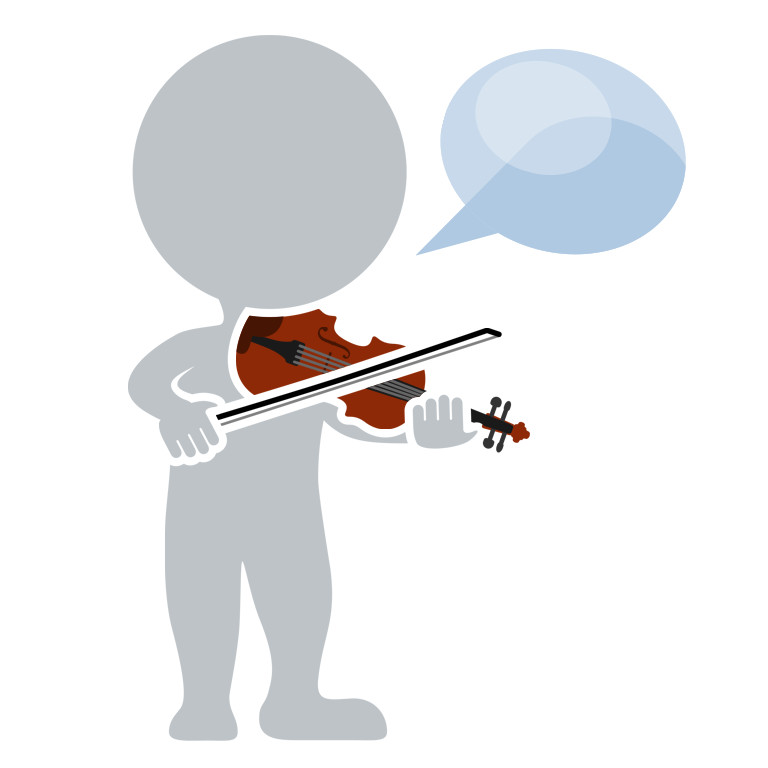Looking very much like the Green Bay Packers throughout the inaugural years of the Super Bowl, the Chicago Symphony Orchestra takes the prize of having the best website in the business for the second straight year…
Nevertheless, they did finish up with a slightly lower score as compared to last year. Although dropping 2.09 points to 89.71 out of 100 wouldn’t classify as a significant decline, it was enough to lower them over the threshold of an A- into the realm of B+.
![]() The chart to your right illustrates the changes in the CSO’s score by category from 2004 to 2005. By and large, they followed the same trends as the entire business, loosing ground in ticketing and content & functionality while gaining ground in the category of orchestra information.
The chart to your right illustrates the changes in the CSO’s score by category from 2004 to 2005. By and large, they followed the same trends as the entire business, loosing ground in ticketing and content & functionality while gaining ground in the category of orchestra information.
In order to find out more behind why some of those changes took place I talked on the phone to Kevin Giglinto, Chicago Symphony Orchestra’s VP for Sales and Marketing about their website.
Roiling Over Registration
The largest single loss for Chicago was in the area of ticket purchases, where their score fell 3.64 points. In particular, the loss was due to an automatic deduction for the mandatory registration their ticketing system compels users to follow.
The good news is that’s already in the process of being changed, according to Kevin,
“I wish the registration wasn’t required, but right now that’s the way it needs to work. But we are starting to resolve those issues for later this fall and should have the new system in place shortly after that.”
In particular, the mandatory registration was a result of changes made to the latest version of Tessitura, a ticketing, marketing, development and fundraising software suite that is considered by many in the business as a benchmark product (and I would wholeheartedly agree with that assessment).
Nevertheless, being the best doesn’t always mean the system is doing everything it should. As such, clients like the CSO are requiring that the system institute some changes to make the ticket buying experience as easy and as quick as possible for customers while simultaneously allowing the organization to offer real time, coordinated ticketing solutions.
One of the problems with mandatory registration is it extends the amount of time it takes patrons to purchase tickets and fosters a sense of “marketing anxiety” (the fear of never ending emails begging for dollars and telling you about the latest concerts, etc.). According to Kevin, another problem with their mandatory registration was it began to clog up their tracking data with clusters of false information.
I would say Kevin is absolutely correct, just look at website such as www.bugmenot.com. Their singular purpose is to help internet users circumvent the mandatory registration required at mass media sites. Another case in point, every orchestra which required a mandatory registration during the review period should now have the following registration material for a Mr. poiupoiu qwerqwer who resides at asdf Street, Baltimore, MD 21010, 410-555-5555, asdfasdf@asdfasdf.com. Good luck sending out promotional material.
As soon as the CSO is able to eliminate the mandatory user registration their score will increase to a 92.38, which would be an all time high score for orchestra websites.
Maximizing Connections
The category which Chicago improved the most, orchestra information, was still their lowest overall category, scoring 15.2 out of 20, or a “C”. One unique feature the CSO site which was related to increasing the connection between patrons and members of the organization was their “ask an expert” element located under the “meet the performers” heading on the left navigation bar.
My initial reaction was, “Wow, this is really neat. I would have loved this as a student or if I were a patron. I could ask a CSO musician a question about their instrument or about music in general”. About a nanosecond later the skeptic in me kicked in and pointed out “The experts are never really defined anywhere on the ask an expert page”.
I asked Kevin who exactly the experts responding to questions are and I could hear the smile on the other end of the phone before he even started to talk. He said,
“Initially, ask an expert was very popular and it was being staffed by musicians but there were so many inquires coming in they weren’t able to keep up with it in an immediate sense and we now have a collection of individuals, musicians and managers, to help obtain answers.”
When asked whether or not interest in the feature changed after that decision was implemented Kevin said,
“There was a reduction in inquiries after that change.”
Kevin went on to point out that one of the problems with the level of success they experienced through ask an expert was that musicians weren’t always able to respond to inquires in a timely manner, which would tend to disappoint some of the features users. Nevertheless, I think this is an excellent example of just how valuable a resource the musicians are in aspects beyond the stage.
It’s also a good indication of just how important it is for orchestras to begin featuring their musicians as much as possible and increasing the amount of direct contact they have their respective audiences.
The Money
According to Kevin, annual maintenance for their website remained steady at around $150,000. However, compared to last year, revenue is higher by $250,000, 95% of which was from ticket sales.
“We are looking into expanding options for donations for specific campaigns,” “Ticket sales channel is the lowest in the organization via the website,” said Kevin. “In anticipation of those figures increasing for this year, we have expanded our customer support efforts for ticket buyers having problems with online orders via our box office staff.”
When asked whether or not the CSO will need to continually increase their website expenditures just to keep up with current sales figures Kevin said,
“I think we feel good about our budget as it is and we want to work with it where it is as opposed to having to implement increases. I believe that in the long run we’ll be able to reduce the amount of money we spend on marketing efforts while maintaining higher attendance rates.”
And that’s what it’s all about; using a website to reverse the business wide trend of the rapidly increasing ratio of what it costs to sell a ticket to each performance.
What’s In Store For The Future
Since this season marks the last for the CSO’s long time music director, Daniel Barenboim, I asked Kevin if there were any changes in store for next year.
“In 06-07 we’re considering a new visual look to coincide with the change in the music director position,” said Kevin. “Expanding subscription renewals online is another big goal. However, the architecture and navigation structure won’t really change unless it’s user driven.”
We’ll have to wait until next fall to see if those changes help or hurt the CSO’s ability to retain first place. With groups like Minnesota breathing down Chicago’s neck this time around, (the folks at Symphony Center can probably tell you what Osmo Vanska had for lunch) it promises to be a real horse race. And with all good horse races, keep your eye on the long shots.
Groups like Columbus took 4th place after moving up 12 positions due to their straightforward but very competent architecture and Nashville shot up 11 positions this year to capture 6th place; and that was without implementing their anticipated, drastically redesigned, website (which just happens to coincide with the opening of their new $120 million concert hall). Then there are the other big budget giants, such as San Francisco and New York, who scored much better this season.
The Chicago Symphony is, without a doubt, the king of the orchestra website hill, but like all winners they’ll have to work twice as hard to keep their spot as they did getting there in the first place.
Back to the 2nd Annual Adaptistration Orchestra Website Review main page.



On “the fear of never ending emails begging for dollars and telling you about the latest concerts, etc.”:
Marketing anxiety can be addressed with an easy-to-find privacy policy. (Even when the policy itself is unsatisfactory, one can choose to ditch using the website without that lingering feeling of uncertainty.) Were privacy policies part of the scoring system?
PK,
Those are very valid points, thank you for bringing them up. Yes, users can read through a privacy policy to know how their information may or may not be used. Unfortunately, going through all of that language is usually far more than users care to do and they simply take your other piece of advice and simply get out of the site – or at the very least stop using it to buy tickets. Furthermore, a privacy policy doesn’t always ensure that a users information won’t be used for marketing or solicitation purposes, they usually state whatever the policy covers, good and bad.
Either way, I think those options wind up hurting the orchestra and the easier solution is to simply not require mandatory registration to purchase tickets.
As for your question regarding whether or not the inclusion of a privacy policy is considered in the evaluations I can confirm that it absolutely is. Along with that is a requirement for a security notice in conjunction with any online transactions (a topic which will be featured in an article on Monday 9/16/05).
-Drew
I do read those privacy policies and I deplore mandatory registration. In practice, though, registering rarely requires more information than the act of completing a purchase does, and perhaps the rush to finish the buy can push aside a user’s nagging fears of future marketing. (I guess these systems are designed to appeal to genuine purchasers, and care little about the desires of browsers, a.k.a. merely _potential_ purchasers.) The question of delays caused by a separate registration process is separate from this privacy/marketing business, of course.